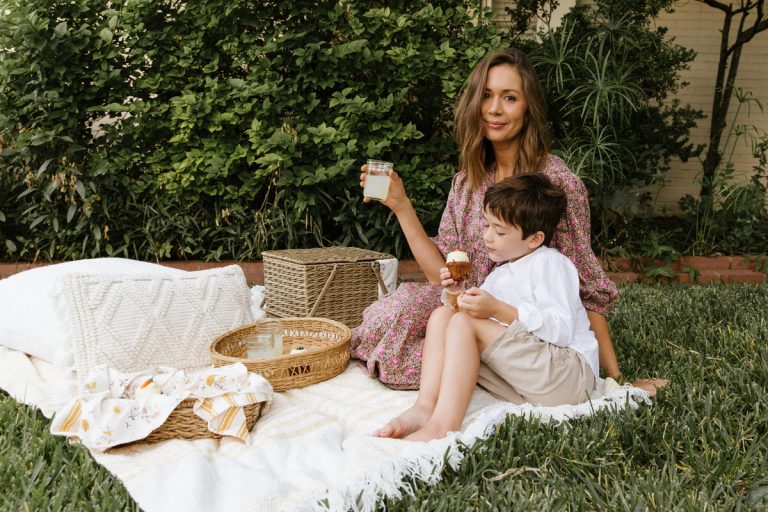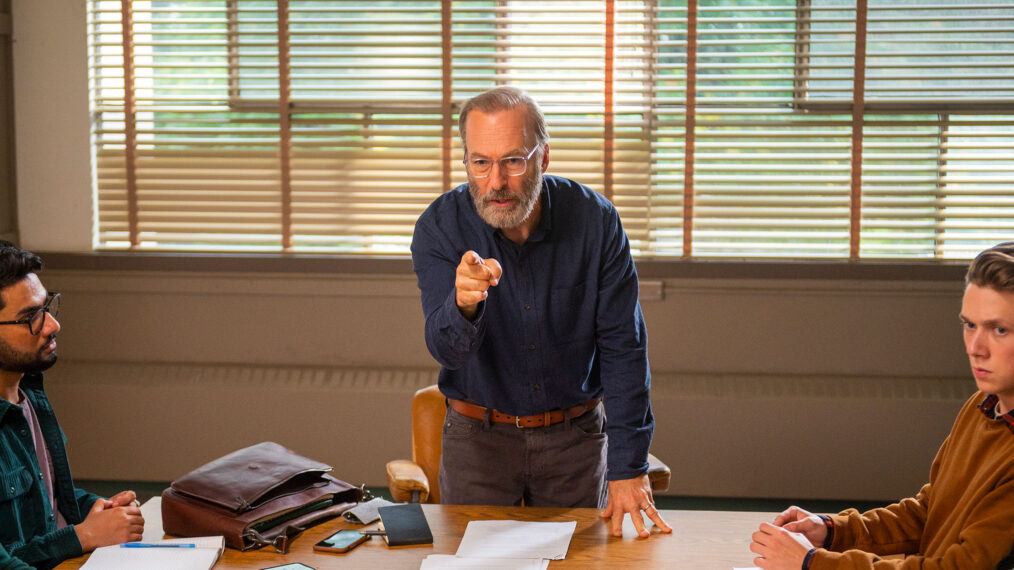In her debut novel, The Applicant, Nazlı Koca takes the reader on Leyla’s identity crisis whirlwind in Berlin, Germany. Recently failed from her masters thesis and at risk of losing her student visa, Leyla resorts to working as a cleaner at a youth hostel as she awaits an answer from her university appeal.
Leyla takes to keeping a diary as she attempts to make sense of the series of events that led her to this state. A once privileged upper-middle-class student in Istanbul, she is haunted by the reality of her family’s debt-ridden existence after the death of her alcoholic, abusive father and crash of the Turkish economy. What is the better option: fighting to stay as a non-citizen in Berlin to live the life of an artist or retreating home to clean up her father’s mess?
To take her mind off of her family, she spends her days pocketing items left behind from hostel guests—half consumed liquor bottles, coins and snacks—clubbing in Berlin’s infamous nightlife with fellow immigrant artists, watching Turkish soap operas and attempting to work on her fiction writing. She even surprises herself by finding solace in a traditional leaning relationship with a right-wing Swedish Volvo salesman.
With a biting sense of honesty, Leyla comments on the world around her, dissecting Western hypocrisies and double standards. Why are Europeans considered “ex-pats” while Turks are “immigrants”? Who has the privilege of living as an artist?
As she slowly begins to reckon with her tangled past in Turkey and uncertain present as a writer in Berlin, we are left with glimmers of hope that Leyla has the resolve to figure it out.
Amy Omar: Could you speak a bit on your journey as a writer?
Nazlı Koca: I always wanted to be a writer, but I didn’t actually write anything until I was in my 20s.
I grew up in a city called Mersin on the Mediterranean coast and moved to Istanbul for college. I stayed in Istanbul for two years after graduation, working at advertising agencies as a copywriter. I tried working as an editorial assistant at a publishing house as well, but it was a horrible experience. I was so disappointed —I thought that publishing would be my way into writing and having a literary life. When I moved to Berlin I went back into copywriting but then also worked in social media policing and cleaning like Leyla. And I found unexpected writing communities at these jobs, cheap bars, zine stores.
Then I moved to the US for a fellowship at Notre Dame, where I did my MFA. I lived in New York for a little bit too, working at a bookstore and writing The Applicant in a series of sublets across Brooklyn.
Now I’m in a PhD program in Denver. It’s been a long journey.
AO: As someone currently in academia, how does that impact Leyla’s perspective? Can you elaborate on that?
NK: There’s nothing I could add to Leyla’s take on academia as someone who stayed in it. All universities run on the white-collar ethos of “We’re doing it all for the love of books.” No. This is not love. This is capitalism at its best, and you’re just a part of the system. A system that’s based on exploitation, manipulation, and hoarding power. And you’re holding on to dated rules and requirements for admission and success because you want to thrive in it.
AO: So much of adulthood is learning the reality behind these institutions that, as children, we are taught to view as noble professions. But then, you get to the industry, and you’re like, wait, these are not noble at all.
NK: Yes! And I’m scared because I don’t want to turn into one of those novelists who fictionalize the emptiness of their safe academic jobs in a world where children are forced to marry 70 year olds or work in mines. But I do feel tempted to write about the not-noble-at-all position that I’m in. There’s something so ugly about the privilege of it—the respect that you get just being in academia. When I was working as a bookseller, I got less respect, both from my bosses and the customers, even though it paid more, and I already had a terminal degree in my field.
AO: Leyla believes that by moving away from Turkey, not speaking Turkish and “not thinking in Turkish, [her] past would not dictate her future”. She holds onto the hope that she can scrub her cultural trauma and start fresh. Is that a possible pursuit?
NK: I don’t think it is. It hasn’t been possible for me at least. Up until a couple years ago, I still thought it was possible, if I found the right place. It was a kind of dark secret that I wouldn’t want to admit. But after reaching my 10th destination, my cultural trauma is inseparable from my lifelong attempt to escape it. I think there’s some value in the attempt though—as a viable coping mechanism.
When I left Turkey I was able to breathe for the first time. I told myself “I’m my own agent.” But then, I quickly realized, no, there’s no such thing as a free agent. In those first years away from Turkey, there was still an intense reckoning to realize that, in addition to having a cultural inferiority complex imposed upon me by the Western gaze, I also come from a problematic country, which made it almost easier to surrender to the worst perceptions of my cultural identity.
But if you’re anything like me, no matter how many poetry readings you conceal your name and home country at, sooner or later you end up in a place where you ask yourself, “Wait, should I forget about it? Or should I advocate for it?” Because you feel like you need to fight for it and make art on behalf of your people. But then, who exactly are your people? I’m still not sure.
AO: Could you speak to your experiences working as a cleaner? How did your cleaning experiences vary depending on the city?
You feel like you need to fight for [your home country] and make art on behalf of your people. But then, who exactly are your people? I’m still not sure.
NK: Actually, I was only a cleaner in Berlin. I was a dishwasher when I moved to South Bend because even though I had a fellowship, I still needed a little more money to get by. I worked at a huge dining hall that served Notre Dame’s infamously white and wealthy student body. And behind the dirty tray windows waited three dozen dishwashers, almost all people of color, including the student workers, because this was the best paying student job and international students are only allowed to work on campus. It was very different from working in a hostel in Berlin. Europeans are usually careful with their money and the environment. They don’t waste much. At Notre Dame, students would rarely finish or even empty the food on their trays.
Even before I started working in the kitchen, during orientation week, I was shocked by how many plastic bottles were handed out. I think I have a draft of a short story somewhere that I wrote on my first week in the U.S., set in a dystopian religious society that wastes for worship.
AO: Leyla’s experience living in Berlin is atypical from the stereotypical image of Berlin as an artist haven. It seems like most of the foreign characters in the novel are disillusioned with the false promise of artistic freedom. Why is that? Are only certain people allowed to take part in artistic pursuits?
NK: Immigrants are often erased from narratives of artistic pursuit in the city even though they’re the backbone of every major city that artists feed on. Berlin’s background is a mosaic of Turkish store signs, kebab cutters, bus drivers—how do you even erase it?
Or the movie Paterson by Jim Jarmusch, which I loved. But later on, I heard that Paterson has the largest Turkish community in the Tri-State area. They have Turkish grocery stores and everything. But there is no hint of that in the film!
AO: The thing about Paterson, it’s also just a normal suburb. So if you go to Paterson, you’re driving around and it just looks like a normal American city. There’s nothing special about it, but it is very, very Turkish. It’s very funny.
NK: Yeah, so I guess I can’t expect everyone to make Turkish culture their background whenever there’s a large population of Turks. But also it’s funny that we don’t get to have any representation.
For me, it was important to reckon with my role in Berlin—as a gentrifier but also someone who shares an ethnicity with these people who are being gentrified and understands their language. I was like a spy, but I didn’t know who I was spying on and who I was spying for.
AO: In some ways, Leyla perpetuates her own self sabotage by getting sucked into the Berlin nightlife. Why do you think it is so easy for Leyla to lose control? And how much of this spiral is connected to her avoiding her family trauma?
Immigrants are often erased from narratives of artistic pursuit in the city even though they’re the backbone of every major city that artists feed on.
NK: I often think Leyla has more control of her life and story than I do. She doesn’t have to answer to anyone because no one is listening to her. It’s easy to say that she’s avoiding her family trauma in a downward spiral—like she tells herself—but what if descending into the deepest corners of her subconsciousness on her own terms, at her own pace is the only way to confront it all?
The family is the first social unit we know, and it’s based on control. Even in the least traumatic scenario, parents decide what their little human eats, says, and wears for years and years. Maybe it’s not so unwise to spiral until we’re far—and close—enough to the starting point, to all that we’ve learned under other people’s control.
AO: As someone who grew up in a privileged household in Turkey, what do you think is Leyla’s main takeaway after working as a cleaner? How does this “rock bottom” status contribute to her character arch?
NK: I’m pretty sure Leyla knows that working as a cleaner is not rock bottom. But it’s a socially acceptable, honorable way for a woman to earn money with her body in a world where she’s often not allowed to exist outside of its oppression. Leyla’s mother was privileged in that she didn’t have to clean other people’s rooms for money, but isn’t Leyla more privileged as a single woman who doesn’t have to cook and clean for a violent man and can’t even write or speak about her life? Where does sex work fall within this triangle of financially, socially, and physically exploitative roles most women get cast in without a choice? Cleaning lets Leyla put these questions into words for the first time.
AO: This line stuck out to me: “I had been avoiding my own country’s art, as if I could separate myself from the pain, guilt, rage we’re all doomed to carry no matter where we go, rage we are not even allowed to scream about, make films about, write about, sing about.” We have seen incredible political films come out of other countries, like Iran, why do you think this isn’t the case of Turkey?
NK: We were at the center of an empire for hundreds of years. One that had mastered the art of oppression in mysterious ways, and coded it in our DNA. And oppression turns into self-censorship the moment a child asks a question their parents are too scared to answer.
Our best political poets, writers, filmmakers have paid for their art with their lives. Each new government condemns the exiling of a political artist by their predecessors, then finds new ways to silence the artists of their time. Most contemporary artists stop making political art after they escape Turkey, if they can. And who can judge them after watching them get charged with speech crimes, antagonized in the media, and receive hundreds of death threats on social media?
We all got scared and withdrew after a few people died at Gezi Park protests, but look at what’s happening in Iran. In Turkey, we still hold on to the illusion of being a free country and having more freedoms in comparison to other Middle Eastern countries, and that makes us not take risks. Whereas in places like Iran, people are revolting because they have nothing left to lose. But what is it that Turks have to lose? Our little bubbles made of debt and denial?
Author’s Note: Thank you for letting me return to this conversation in the aftermath of the Turkey-Syria earthquake. To these three questions I asked myself, I think, even though I seem to have unconsciously but strategically planted them just outside of I, me, mine.
But then, who exactly are your people?
But what is it that Turks still have to lose?
Our little bubbles made of debt and denial?
My people are all the Turks who have been asked by their anxious mothers last week to delete the most political post they’ve shared on social media in years which simply said, “I can’t express my emotions in a way that won’t get me arrested.” They’re the Armenians who sent hundreds of tons of aid to Turkey. The Kurds, Turks, Arabs who have been left to die under the rubble because the government blocked access to Twitter where people shared their locations because officials didn’t want the world to see how angry the rest of us were that our little bubbles made of debt and denial had collapsed in on us.


























































